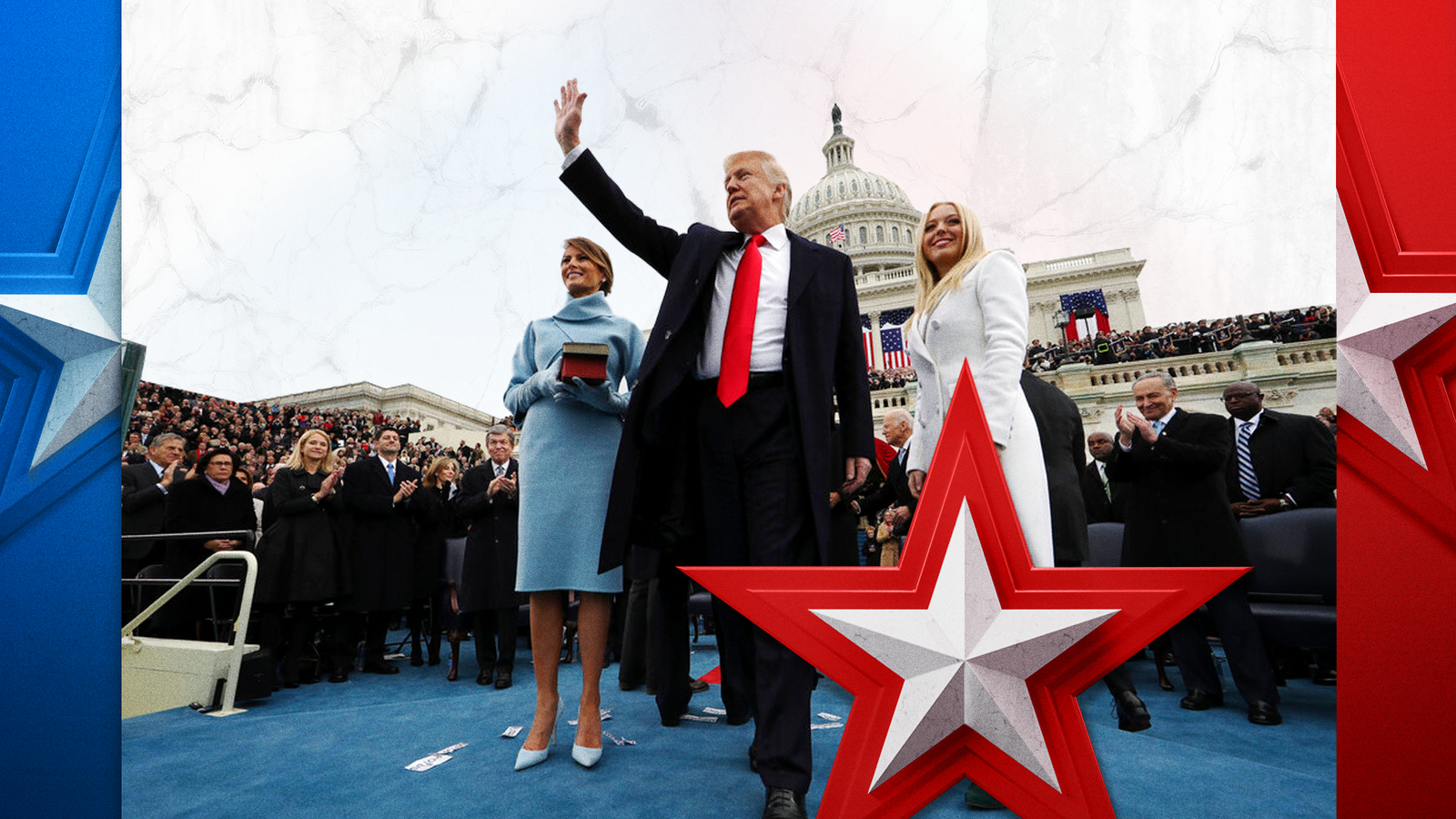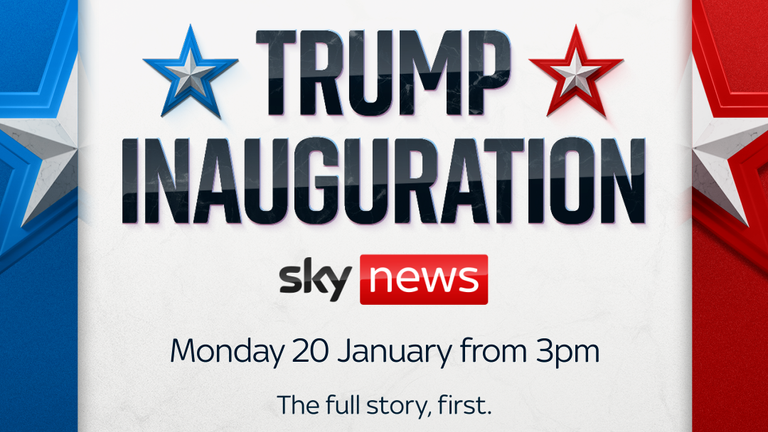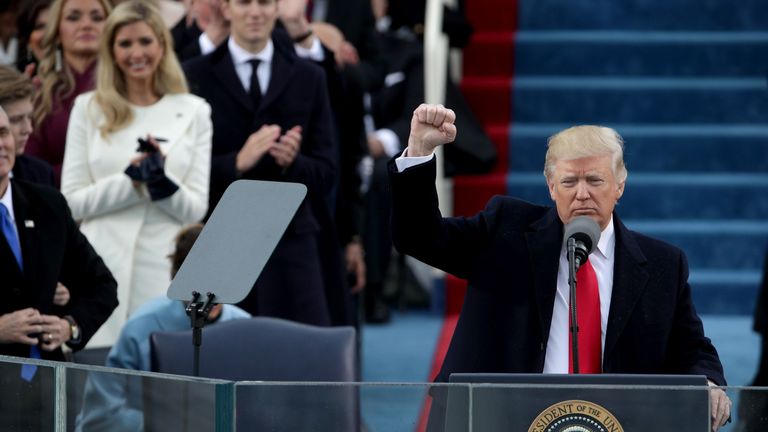“`html
Presidential inaugurations serve as the American counterpart to the UK’s coronation and State Opening of Parliament combined. These events occur every four years, approximately 10 to 11 weeks after a presidential election.
The lone constitutional relevance is that the newly elected president formally takes the oath of office, pledging to “support and defend the Constitution of the United States against all enemies.”
He (so far all 45 presidents have been men) then proceeds directly to the White House to commence his governance.
Unless the incumbent president has been re-elected, inaugurations typically symbolize a new beginning for the United States with a fresh leader. However, this time is different.
Donald Trump stands as the second president to serve non-consecutively, having lost an election in between, thereby being identified as both the 45th and 47th POTUS (President of the United States).
The preceding two inaugurations, those of Trump in January 2017 and Joe Biden in 2021, held greater than mere constitutional significance. Both occasions deviated from traditional ceremonial customs, foreshadowing and exemplifying the remarkable upheavals that have unfolded in the US over the past decade. I covered both events from Washington DC for Sky News.
Trump’s initial inauguration is characterized by two aspects: the confrontational tone of his address and the unwillingness of the new president and his team to acknowledge the evidence visible to their own eyes.
In their inaugural address, new presidents generally aim to be uplifting while modestly recognizing the challenges associated with leading the world’s premier nation.
Donald Trump, however, diverged from this practice. He campaigned on a vow to restore America’s greatness, and instead lambasted the state of the nation he was about to govern, labeling it as “American carnage.”
He expressed dissatisfaction, stating: “We’ve bolstered foreign industries at the cost of American industries… funded the military forces of other nations… America’s infrastructure is deteriorating… millions and millions of workers have been overlooked.”
In contrast, he asserted that “from this moment onward, it will be ‘America First’… America will begin to win, win like never before.”
Bush: ‘That was some strange stuff!’
The address was shocking to the distinguished guests present; as he departed the platform outside the US Capitol, Trump’s predecessor as a Republican president, George W Bush, was overheard commenting: “That was some strange stuff.”
The day only grew more peculiar. The District of Columbia is predominantly Democratic, having supported Hillary Clinton. Aerial imagery, aided by white ground protection in the Mall, indicated that turnout for the event was below average.
The Washington Metro reported a decrease in passengers compared to a regular Friday. Subsequent official estimates verified that the live audience, along with TV viewership for Trump’s inauguration, was considerably smaller than that for Barack Obama’s and Ronald Reagan’s inaugural ceremonies.
Despite this, Sean Spicer, President Trump’s inaugural press secretary, proclaimed to the White House press corps that there had been “the largest audience ever to observe an inauguration. End of story.” Trump’s close
“`aide Kellyanne Conway supported him on television and delivered one of the memorable quotes from the initial Trump administration by clarifying that Spicer had introduced “alternative facts“.
The magnitude of the audience was not a concern for Joe Biden’s swearing-in ceremony in 2021, as Washington, DC was essentially under lockdown due to the COVID-19 outbreak and the assault on Congress on January 6.
Fences, barbed wire, and military personnel secured the grassy spaces that typically accommodate spectators. Instead of a crowd, there was a “field of flags” representing the 50 states. The primary oath of office was still conducted outside the Capitol, albeit with health protocols in place, such as face coverings and social distancing, along with a more restricted guest list than what is customary.
Trump bypasses Biden’s inauguration
Trump had managed to endure his second impeachment trial just a few days before and persisted in propagating the “big lie” that he had claimed victory in the 2020 election. He became the first living president since 1869 not to acknowledge or participate in the swearing-in ceremony of his successor.
He conducted his own countering farewell ceremony from the White House, addressing those bidding him farewell at Andrews Airforce Base with a parting statement: “Goodbye. We love you. We will return in some capacity.”
Trump’s absence from the inauguration was significant, much like Michelle Obama’s absence during his second inauguration on Monday. Her husband and other living former presidents were present.
Discover more:
Trump’s swearing-in ceremony may be relocated
Melania: The first lady who sets her own standards
The role of reality TV and appearances in aiding Trump’s White House ascent
The absence of Sir Keir Starmer is not a significant issue. Historically, no British prime minister has been present for an inauguration; ambassadors typically represent foreign presidents and prime ministers. It is rumored that Netanyahu from Israel and Milei of Argentina may attend in person this year.
In contrast to Trump’s address four years prior, Biden’s inaugural speech was a conventional homage to “the victory not of an individual, but of a principle, the principle of democracy”.
He expressed hope for a resurgence of normalcy and harmony following the chaos of the Trump administration: “So now, on this sacred ground where just days ago violence attempted to undermine the Capitol’s very integrity, we unite as one nation, under God, indivisible, to fulfill the peaceful transfer of authority as we have for over two centuries.”
“Politics should not become a raging inferno that obliterates everything in its trajectory,” Biden reassured the American populace, “every disagreement does not necessitate an all-out conflict. We must renounce a culture where facts are bent and sometimes fabricated”.
The ensuing four years did not unfold as he envisioned.
Biden ‘warning of power misuse’
Biden has served a single term as president, while Trump has secured re-election. In his final address to the nation this week, President Biden acknowledged, “Americans are being inundated by an onslaught of misinformation and disinformation that facilitates the misuse of power”.
Criticizing what he referred to as “the tech-industrial complex,” he cautioned that “an oligarchy is forming in America characterized by extreme wealth, authority, and influence that poses a direct threat to our democracy, our fundamental rights and freedoms, and an equitable opportunity for all to prosper”.
Prominent tech billionaires are forming alliances with the president-elect. Substantial contributions to the Inauguration Committee from Meta’s Zuckerberg, Amazon’s Bezos, Palantir’s Thiel, OpenAI’s Altman, along with Uber and Google, reflects a typical practice by the largest US corporations. Ford and General Motors are also making contributions.
This year, unlike in 2021, Biden will partake in the full range of festivities that newly inaugurated presidents traditionally anticipate: a luncheon at the Capitol, a parade along Pennsylvania Avenue, and not less than five official inauguration balls in the evening.
👉 Subscribe to Trump 100 on your podcast app 👈
Historically, Democratic presidents have been greeted with star-studded concerts, open to the public. This year, the Village People, a favorite band of Trump, will be performing. However, significant events are not scheduled.
Besides a few country and western artists and a couple of independent actors, most celebrities oppose Trump. Enthusiasm has also been dampened by the wildfires in Los Angeles, the epicenter of US entertainment.
Physical devastation is occurring in California, conflict in the Middle East, Ukraine and Sudan, and deep-seated discord at home in the US.
The entire globe will be listening with trepidation on Monday as Donald Trump delivers his message at his second inauguration as president of the United States.






